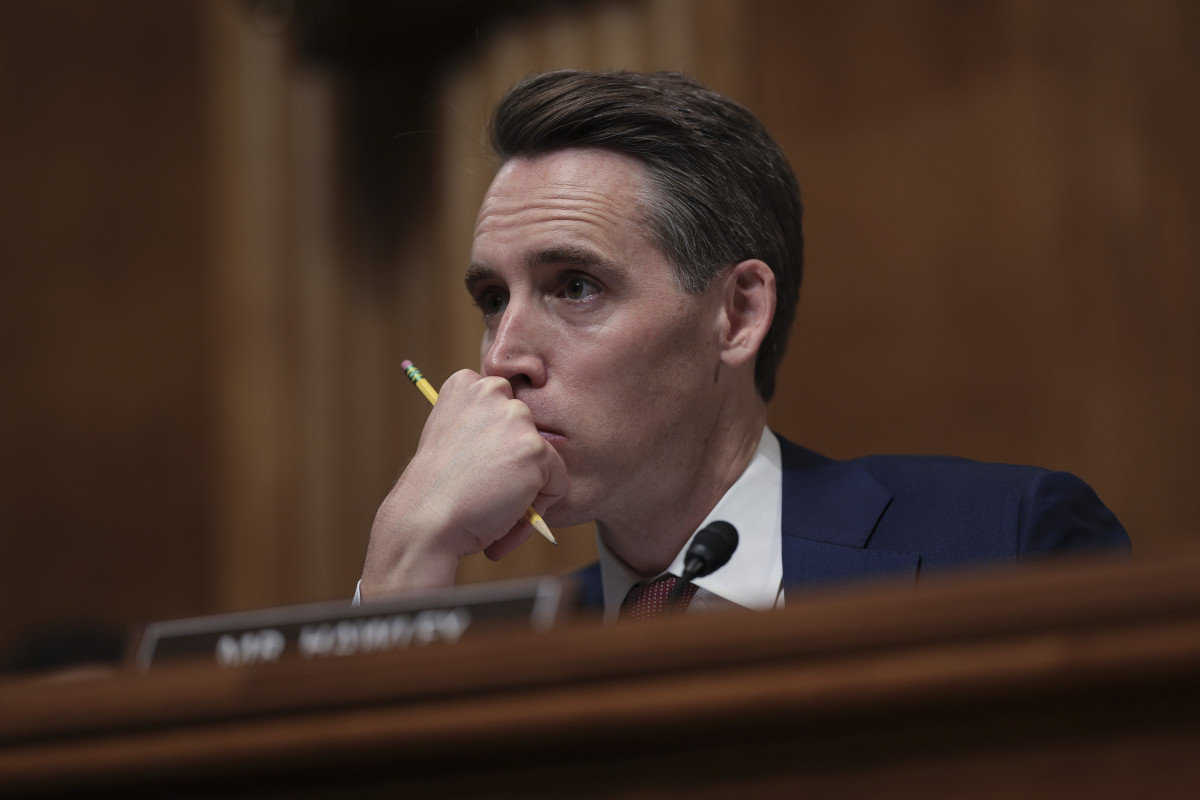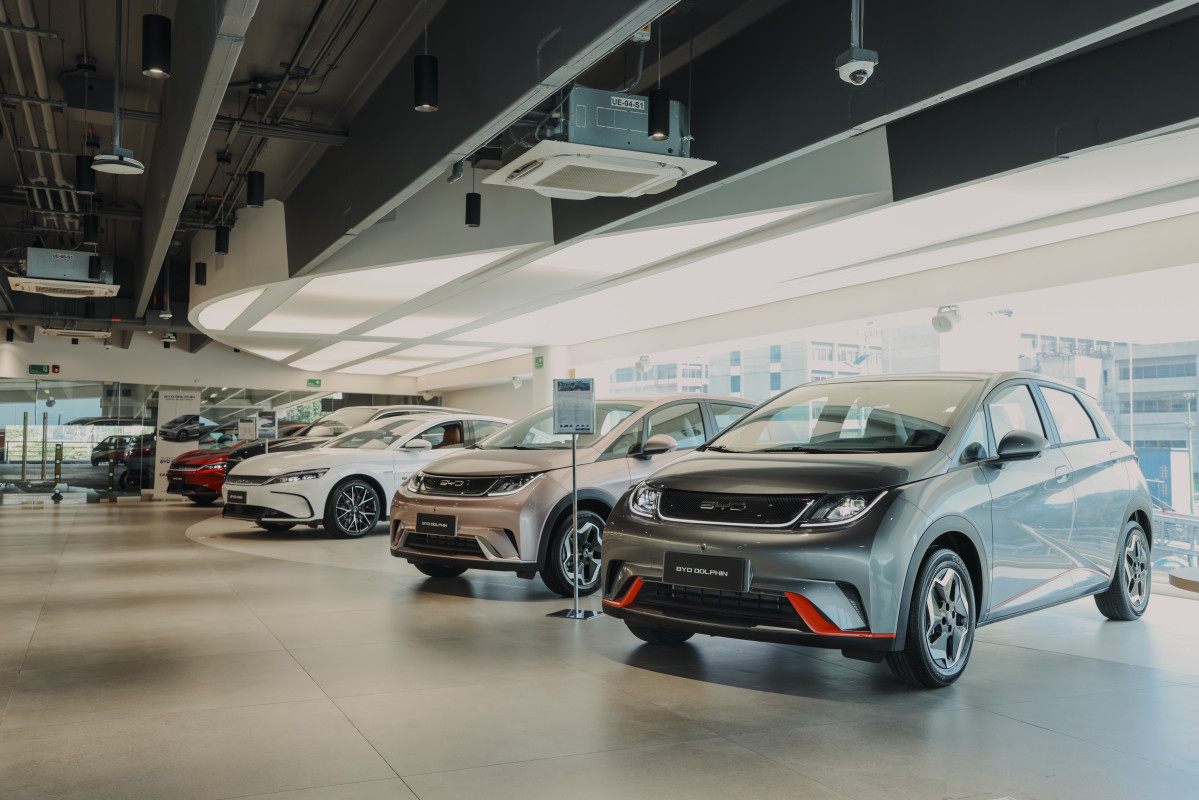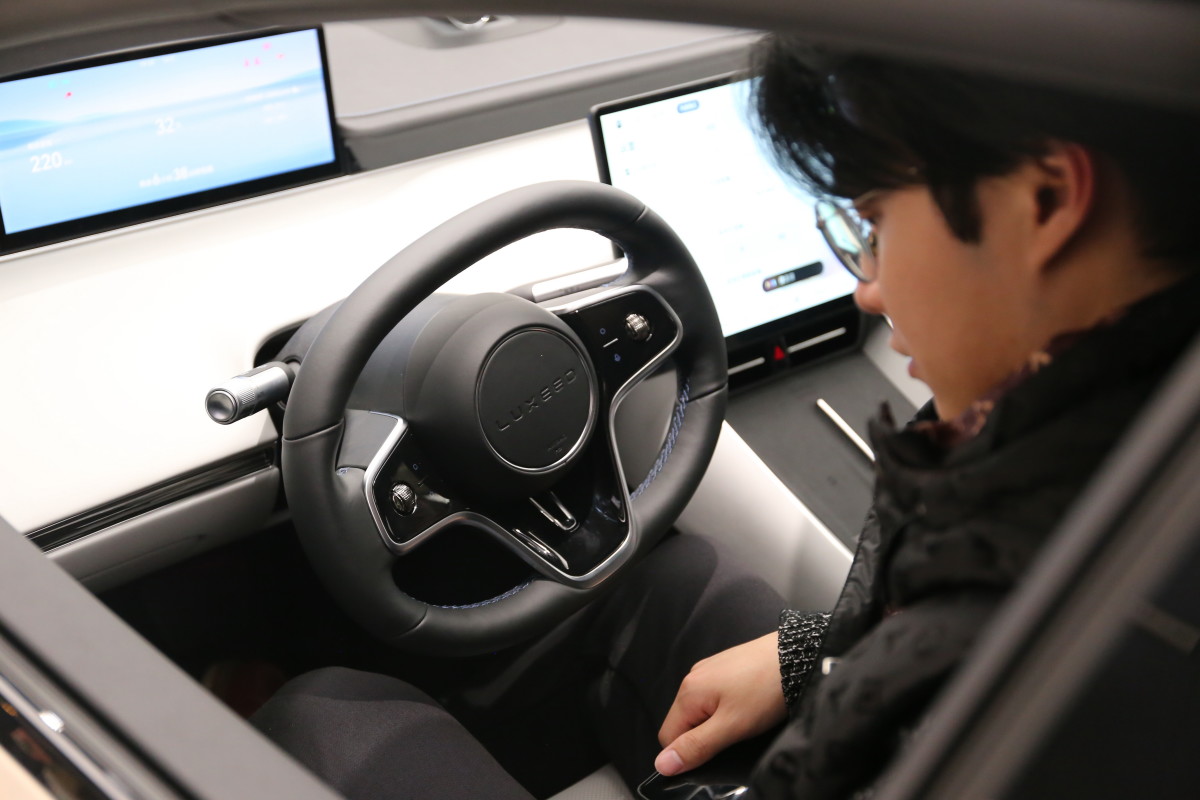
The wheels are turning and the tide is shifting against Chinese automotive heavyweights and their ambitious plans to enter the U.S. market.
Related: Honda's new plug-in hybrid skips the gas pump for this novel zero-emissions fuel

In a statement released on Feb. 28, Sen. Josh Hawley (R-Mo.) announced that he is introducing legislation that would make it drastically harder for Chinese-based automakers to sell their EVs in the United States, amid concerns about its potential impact on U.S. automakers' market share.
Under what is called the "Protecting American Autoworkers from China Act," the Republican's bill raises base tariffs on cars from China from 2.5% to 100%, amounting to a total penalty of 125% on all imported cars from China. Additionally, the higher penalties will apply to automobiles manufactured by companies of Chinese origin, no matter where they are made – shutting the Mexican manufacturing "back door" for Chinese automakers like BYD. (BYDDY)
“If Joe Biden wants to support American autoworkers, he should start by protecting them from the existential threat posed by China,” Senator Hawley said in a statement. “We must put American workers first, bring jobs back to American soil, and reject radical climate mandates that make China rich and America poor.”

The introduction of the bill comes a few days after the Alliance for American Manufacturing published a report warning that inexpensive Chinese cars can change the dynamics of the U.S. car industry and threaten the viability of American automakers.
"The introduction of cheap Chinese autos — which are so inexpensive because they are backed with the power and funding of the Chinese government — to the American market could end up being an extinction-level event for the U.S. auto sector," the group said.
Under their "policy recommendations," the group suggested to impose "exclusionary tariffs on all Chinese automobile imports to the United States," as well as legislation preventing "automobiles and component parts manufactured by companies headquartered in a non-market economy, such as China, from gaining any preferential treatment under USMCA, GSP, and any other trade agreement."

This is not the first time that Senator Hawley has spoken out against Chinese car companies, or EVs in general. During an Energy Committee hearing on Jan. 11, Hawley grilled U.S. Department of Energy Deputy Secretary David Turk about what his office calls a "radical climate agenda that is propping up China's manufacturers on the backs of American workers."
“Why is it good for the American worker that we force our supply chains to a country that’s our greatest rival and adversary, and why is it good for the American consumer?” Senator Hawley asked during the hearing.
"My nightmare scenario is that we repeat — because of this Administration's climate agenda, climate fixation, I would argue—we repeat and hyper-charge the loss of industry we saw in the '70s, and the '80s, and the '90s, and we do it all over again. And, so, the remaining few things that we actually produce in this country, like automobiles, we won't produce anymore."
More Business of EVs:
- A full list of EVs and hybrids that qualify for federal tax credits
- Here’s why EV experts are flaming Joe Biden’s car policy
- The EV industry is facing an unusual new problem
In a theoretical scenario, "American" cars like General Motors' (GM) Buick Envision and Ford's Lincoln Nautilus (F) would also be subject to the the higher tariffs imposed by Hawley. Currently, the Buick Envision is produced by GM's joint partnership with SAIC in Yantai, China, while the Lincoln is made at the Changan Hangzhou Assembly Plant in Hangzhou, China.
Related: Veteran fund manager picks favorite stocks for 2024







